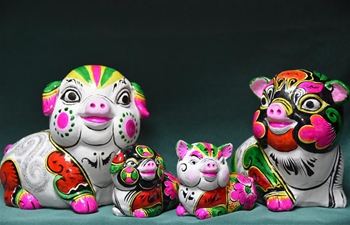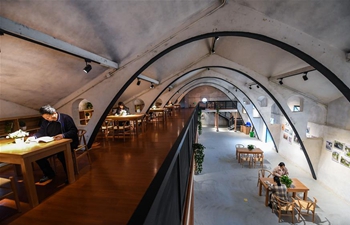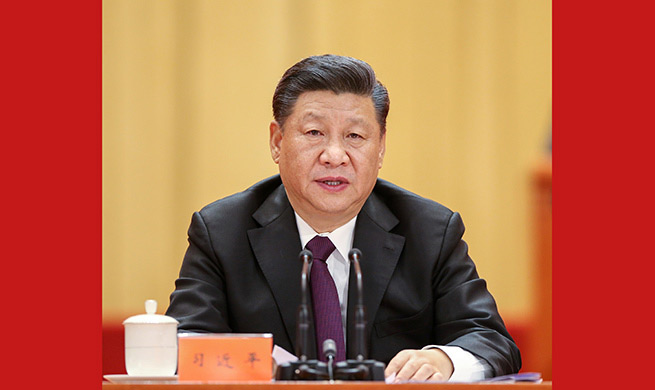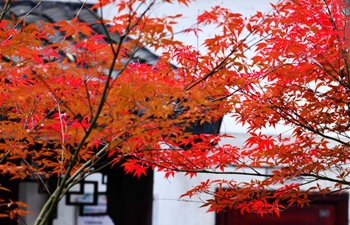GENEVA, Dec. 21 (Xinhua) -- UN migration officials said Friday they are working on one of the largest bamboo treatment plants ever installed in an emergency response to counteract "boring beetles" that are threatening the structures in the world's largest refugee settlement.
"An infestation of 'boring beetles' means the bamboo in almost every shelter in the Rohingya refugee camps in Cox's Bazar - home to around 240,000 families - needs to be replaced," Joel Millman, spokesperson for the UN migration agency, IOM, said at a UN briefing here.
He said that with just over four months until the beginning of the next monsoon season, the race is on to provide families living in the worst-affected shelters with new, more-durable bamboo at Cox's Bazaar in Bangladesh.
IOM has launched a new treatment facility in the south of Cox's Bazar, which will be developed over coming weeks until it can treat around 40,000 pieces of bamboo a month, enough to upgrade between 6,000 and 7,000 shelters.
"This is a major project, and one which will help ensure that the refugees do not have to live with the constant threat their shelters will collapse due to damaged bamboo," said Millman quoting Manuel Pereira, IOM's Emergency Coordinator in Cox's Bazar.
Almost a million Rohingya refugees are currently sheltering in Cox's Bazar.
They live in a rapidly constructed city of bamboo and tarpaulins built on the hills of a forested nature reserve in late 2017 after violence in Myanmar drove hundreds of thousands of people across the border into Bangladesh in just a few weeks.
Treatment at the plant relies on boron - a natural substance filtered and recycled on site then reused to minimize environmental impact.
Plant residue from the treatment process can be used as a fertilizer by nearby farms.
IOM quoted Yoga Sofyar, a bamboo expert working with the agency who helped establish the treatment plant.
"We use bamboo because it's cost effective and grows naturally in Bangladesh," said Sofyar.
"Once the infestation became apparent, something had to be done. This affects many people and involves a significant amount of money, so we need an effective, durable solution. But no one has done anything on this scale before. That has been the challenge."

















